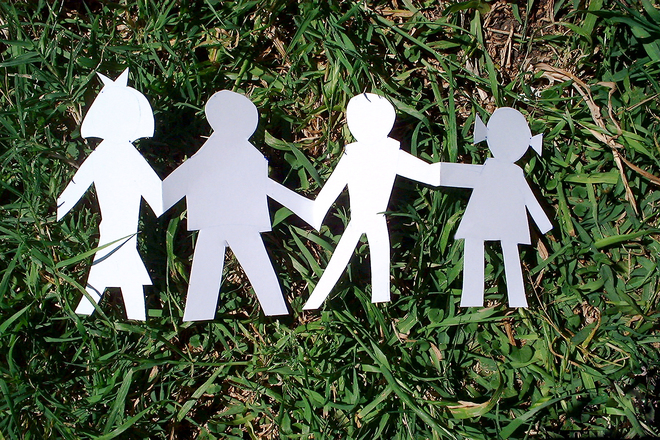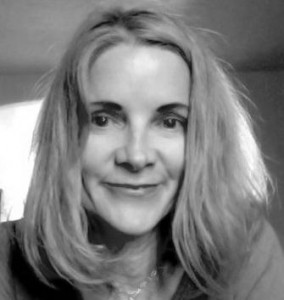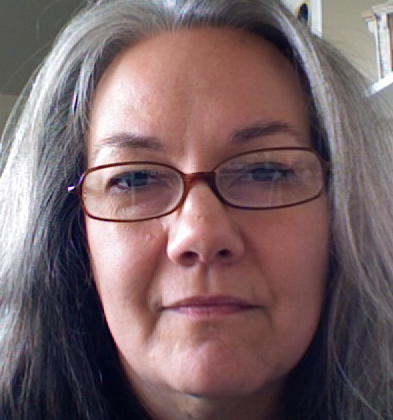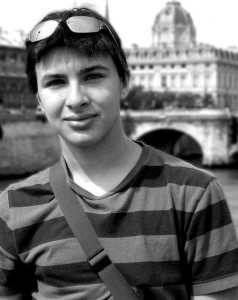 My grandmother died on December 15, 2003.
My grandmother died on December 15, 2003.
To what extent is digital technology an alienating influence?
A Google search for “Gabriela Nudelman Hamden Connecticut” yields nothing pertinent but a webpage from Mylife.com, where another Gabriela Nudelman had set up a profile.
This is not my grandmother. My grandmother does not exist, according to the internet. She is null.
This is what society has to say about Gabriela Nudelman: She was a civil engineer. She was a Russian immigrant. She was Jewish. She was the wife of David Nudelman and the mother of my father and my aunt. She was buried in a Jewish cemetery in New Haven and her gravestone is in the shape of the Hebrew symbol “Chai.”
It means “living.”
This is what I have to say about a woman who grew stranger after her death: She was adopted. She wore a Chai on a golden chain around her neck until she died. She used to take me to work with her. She worked in a cubicle. I had my first experience with computers at her work. Her screensaver was “Deep Space.” It showed thousands of white dots blurring out from the center of the screen, which were meant to represent stars and the movement of a spaceship. Now that I think of it, “Deep Space” is emblematic of our extreme isolation in this digital age. I played my first computer game on her office-computer. It was pin-ball, the sci-fi deep-space pin-ball that has always been a facet of a Windows operating system.
She was killed by ovarian cancer, discovered too late to prevent.
This is what Google has to say about ovarian cancer: “Ovarian cancer is cancer that starts in the ovaries. The ovaries are the female reproductive organs that produce eggs.”
This description is difficult to read. Why? It is painfully disconnected. Like my own reaction to my grandmother’s death.
I was tough. I never cried, not once. I don’t remember the burial. Was I even there? My father cried in front of her grave one year later. It was wonderful and frightening.
I hated her after she died. I always thought that she was disappointed in me. My father kept her picture on his computer desk next to the living room. It was a black and white, candid setting, but she smiled as if posing, nervous and warm, as if caught in mid-twitch. I saw her in my dreams, but I didn’t want to. She was manifested in my poems. Truly, inextricable from my life story. Here are two of my many poems about my grandmother:
In December
Stuck in the blue other house,
my grandmother, croaking like floor,
said what a big boy.
I was.
Night my parents left
us in the house on the lake,
the air terribly.
Hands pressed dark for nothing.
My father’s face the next
morning and I knew
cold.
Blue the end of sound.
He said she didn’t open her eyes.
I said the entire body when that happens.
The head has an empty room.
Touch
In my father’s first house we are having dinner.
The dead grandmother
suddenly beside me.
She reaches over plates to touch faces.
When she touches my cheek
it’s cold.
When she left I was too young.
To be touched in a dream
is better.
The only way I can be “real” is through my writing. Who wants to be real? Raise your hand. The truth is, we were born into this digital age. And it sucks.
In ten years, I have not cried over my grandmother, except in dreams. Tears are a rare commodity. The last time I cried was one month ago. One of my favorite websites is Wouldhavesaid.com. Anonymous users upload letters of regret or thanks, addressed to entities who will never read them.
This is what the website has to say about itself: “Whether the person has passed away, contact was lost, or the strength needed at the time was lacking, this is a chance to say what you have always wanted them to know.” It is a good example of how the internet can be used for good, for storytelling, to evoke reality.
There is one letter on this site that I repeatedly read for catharsis, late at night, because it makes me cry. It is titled “Mr. Biggs.”
In it, Vincent, age 19, writes an apologetic but resolutely thankful letter to his first dog, the twelve-inch-tall and unappreciated friend who always loved him.
It is somewhat similar to my story. Ten years have passed. The writer gains a fulfilling understanding of the relationship through the catharsis of story-telling. He must have told the story ten times in his mind before it cleared enough for the page.
I’m telling this story: Baba Gala died of ovarian cancer. She lives again in this telling, but only so long as I am speaking.
I’m repeating this story, so you don’t forget it. So I don’t forget it.
Baba Gala lives. She dies. I change. I remain.
When revising a poem, I must distance myself from the emotion, to better understand the poem’s technical weaknesses.
This is well and good for the writer. Going over and over this story in my head for ten years, I have come to understand it better. But for my audience, or for any audience, once is simply not enough.
Gabriela Nudelman was my Yin; digital technology, my Yang—dualities in equilibrium; without the one, chaos. This is the difference between digital technology and story-telling. Digital technology seeks to inform. Facts cannot bring back my grandmother. Stories make her seem to live. Information is not evocation.
Computers are just another facet of a cancer which has been killing us since the beginning of recorded history. This cancer is the cancer of the once-told story, the story that is forgotten almost before it is read, and the story that entertains us only as long as it informs us.
Our lives are changing. I’m still telling this story. Our story. This story. Of a life, of the death of a loved one, and its emotional yield.
Breathe. Everyone. In, out.
Our lives are changing. I’m still telling this story.
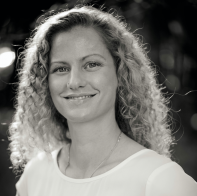 Today we are pleased to feature author Chelsea Dingman as our Authors Talk series contributor. In her podcast, Chelsea discusses her creative process and how it “almost always stems from reading and discussion.” She also reveals that she loves “that poetry lives in uncomfortable, uncertain circumstances…There’s no resolution required in a poem.”
Today we are pleased to feature author Chelsea Dingman as our Authors Talk series contributor. In her podcast, Chelsea discusses her creative process and how it “almost always stems from reading and discussion.” She also reveals that she loves “that poetry lives in uncomfortable, uncertain circumstances…There’s no resolution required in a poem.” Today we are pleased to feature author Aaron Reeder as our Authors Talk series contributor. In his podcast, Aaron provides insights into his poems, “Untangling” and “Failed Poem for My Mother,” both published in Issue 18. He reveals that, when he was writing these poems, he was interested in the systems people fall back on to deal with trauma and grief, specifically the system of family.
Today we are pleased to feature author Aaron Reeder as our Authors Talk series contributor. In his podcast, Aaron provides insights into his poems, “Untangling” and “Failed Poem for My Mother,” both published in Issue 18. He reveals that, when he was writing these poems, he was interested in the systems people fall back on to deal with trauma and grief, specifically the system of family.